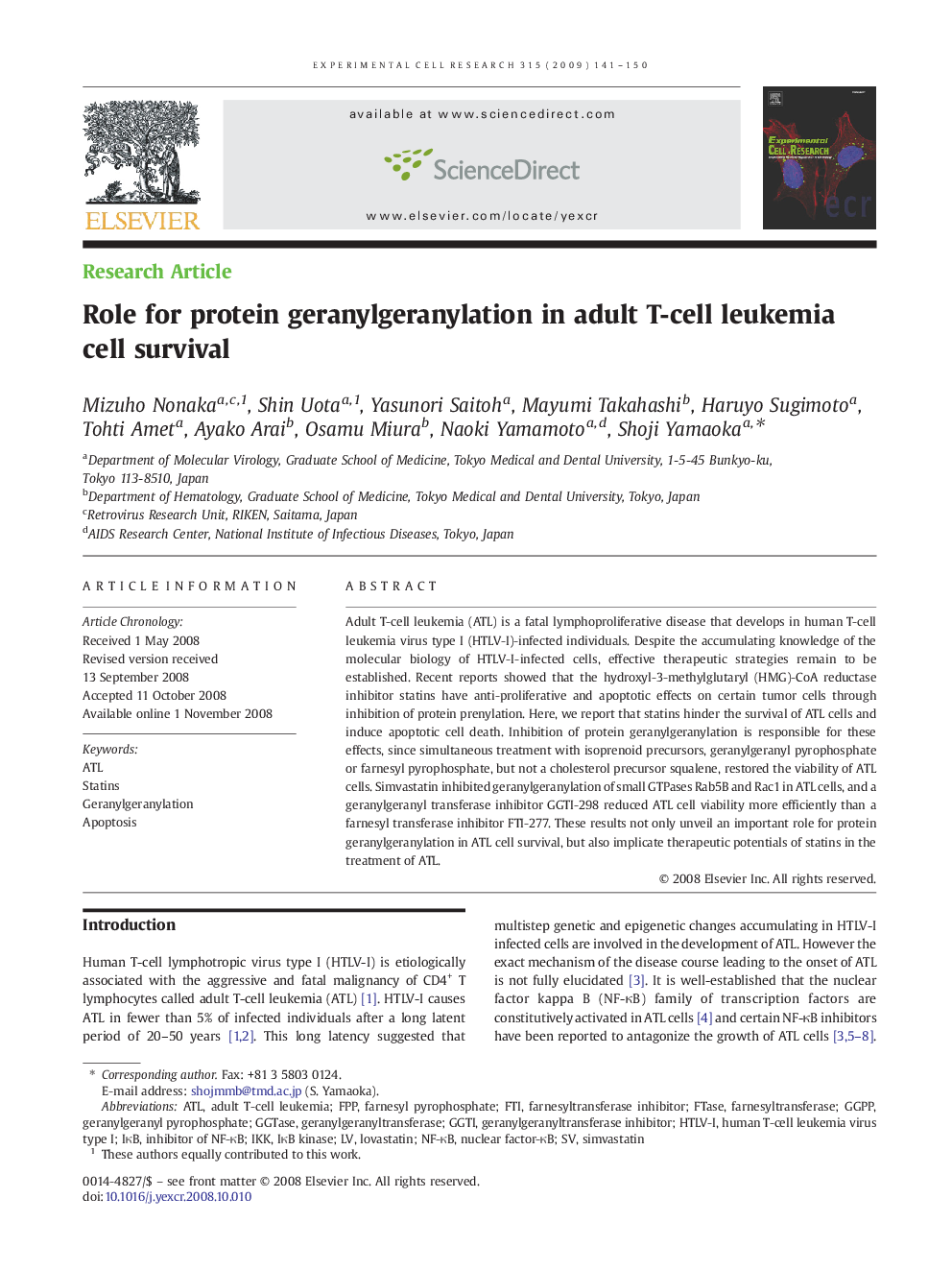| Article ID | Journal | Published Year | Pages | File Type |
|---|---|---|---|---|
| 2131864 | Experimental Cell Research | 2009 | 10 Pages |
Adult T-cell leukemia (ATL) is a fatal lymphoproliferative disease that develops in human T-cell leukemia virus type I (HTLV-I)-infected individuals. Despite the accumulating knowledge of the molecular biology of HTLV-I-infected cells, effective therapeutic strategies remain to be established. Recent reports showed that the hydroxyl-3-methylglutaryl (HMG)-CoA reductase inhibitor statins have anti-proliferative and apoptotic effects on certain tumor cells through inhibition of protein prenylation. Here, we report that statins hinder the survival of ATL cells and induce apoptotic cell death. Inhibition of protein geranylgeranylation is responsible for these effects, since simultaneous treatment with isoprenoid precursors, geranylgeranyl pyrophosphate or farnesyl pyrophosphate, but not a cholesterol precursor squalene, restored the viability of ATL cells. Simvastatin inhibited geranylgeranylation of small GTPases Rab5B and Rac1 in ATL cells, and a geranylgeranyl transferase inhibitor GGTI-298 reduced ATL cell viability more efficiently than a farnesyl transferase inhibitor FTI-277. These results not only unveil an important role for protein geranylgeranylation in ATL cell survival, but also implicate therapeutic potentials of statins in the treatment of ATL.
